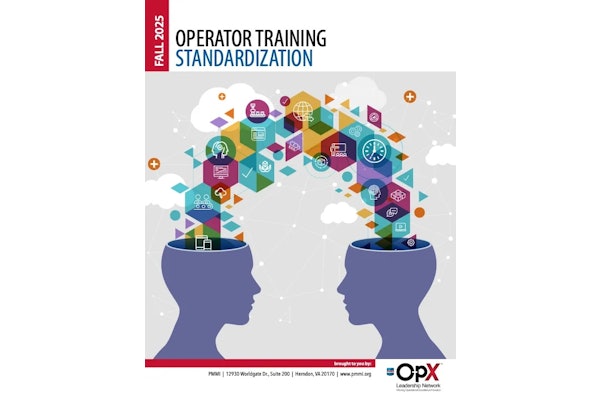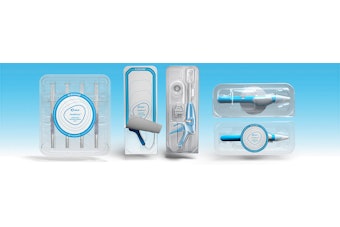The problem of counterfeit drugs is definitely a global issue, says Jim Kouri, a vice president of the National Assn. of Police Chiefs and a security consultant and author.
He points to estimates that one in 20 pharmaceutical products on the market is a counterfeit, but adds that in developing countries, the share increases to one in three.
Although counterfeits appear to be a modest problem thus far in the United States, Kouri warns that Web-based marketing of pharmaceuticals may change that perception. And that won't be exclusively due to the fact that Web sites may be supplying pharmaceutical products made in those developing countries. In fact, he points out, the trade environment in Europe could be permitting the introduction of counterfeits into what otherwise would be secure drug distribution systems.
Europe, he says, allows free trade in pharmaceutical products. Individual governments can set up different pricing mechanisms, which encourage parallel imports. He cites the wide disparity of pricing for pharmaceuticals between Greece and Sweden as an example.
"There is a need for stakeholder accountability, uniform systems, and regulation leading to accountable supply chain management by all players delivering medicines to patients in Europe," says Julian Mount, senior director of European trade for Pfizer, Inc. "This means pan-European legislation, regulatory coordination, appropriate technologies, and the need to better enforce the repackaging of medicines to ensure patient safety and medicine integrity."
Obviously, the same rationale could be applied to other areas of the world, especially in Africa. The threat, according to Jim Thomson, chief executive officer of the Centre for Mental Health in the United Kingdom, is the "loaded gun" that phony pharmaceuticals represent to the world.
Uneven enforcement is like a ticking bomb, according to Ian Lancaster, director of Reconnaissance Intl., organizers of the Global Forum on Pharmaceutical Anticounterfeiting, the second of which was recently held in Paris. "As long as the fight against counterfeits is not a concerted effort," Lancaster said, "criminals will be able to exploit the loopholes in the system."
Kouri points out that the World Health Organization defines a counterfeit pharmaceutical as "one which is deliberately and fraudulently mislabeled with respect to identify and/or source.Counterfeiting can apply to both branded and generic products, and counterfeit products may include products with the correct ingredients, without active ingredients, with insufficient active ingredients or with fake packaging."
Kouri says these drugs could be rejected or out-of-date formulations that have been withdrawn from the market that were obtained and relabeled as genuine and introduced back into the market.
--By Arnie Orloski, Exec. Editor, Packaging World
He points to estimates that one in 20 pharmaceutical products on the market is a counterfeit, but adds that in developing countries, the share increases to one in three.
Although counterfeits appear to be a modest problem thus far in the United States, Kouri warns that Web-based marketing of pharmaceuticals may change that perception. And that won't be exclusively due to the fact that Web sites may be supplying pharmaceutical products made in those developing countries. In fact, he points out, the trade environment in Europe could be permitting the introduction of counterfeits into what otherwise would be secure drug distribution systems.
Europe, he says, allows free trade in pharmaceutical products. Individual governments can set up different pricing mechanisms, which encourage parallel imports. He cites the wide disparity of pricing for pharmaceuticals between Greece and Sweden as an example.
"There is a need for stakeholder accountability, uniform systems, and regulation leading to accountable supply chain management by all players delivering medicines to patients in Europe," says Julian Mount, senior director of European trade for Pfizer, Inc. "This means pan-European legislation, regulatory coordination, appropriate technologies, and the need to better enforce the repackaging of medicines to ensure patient safety and medicine integrity."
Obviously, the same rationale could be applied to other areas of the world, especially in Africa. The threat, according to Jim Thomson, chief executive officer of the Centre for Mental Health in the United Kingdom, is the "loaded gun" that phony pharmaceuticals represent to the world.
Uneven enforcement is like a ticking bomb, according to Ian Lancaster, director of Reconnaissance Intl., organizers of the Global Forum on Pharmaceutical Anticounterfeiting, the second of which was recently held in Paris. "As long as the fight against counterfeits is not a concerted effort," Lancaster said, "criminals will be able to exploit the loopholes in the system."
Kouri points out that the World Health Organization defines a counterfeit pharmaceutical as "one which is deliberately and fraudulently mislabeled with respect to identify and/or source.Counterfeiting can apply to both branded and generic products, and counterfeit products may include products with the correct ingredients, without active ingredients, with insufficient active ingredients or with fake packaging."
Kouri says these drugs could be rejected or out-of-date formulations that have been withdrawn from the market that were obtained and relabeled as genuine and introduced back into the market.
--By Arnie Orloski, Exec. Editor, Packaging World


















